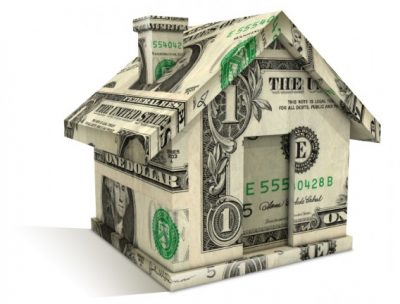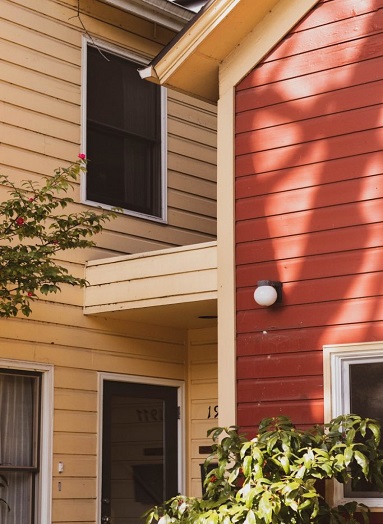

Govt reforms needed to enhance real estate market Warehouse, logistics, student housing to drive increase growth in Nigeria.
The global real estate market size is expected to reach $5.85 trillion by 2030, registering a compound yearly growth rate (CAGR) of 5.2 per cent from 2022 to 2030. The market was estimated to be valued at $3.8 trillion in 2022.
According to the report by Research and Markets, which featured some of the world’s real estate firms such as Brookfield Asset Management, Prologis and Coldwell Banker, rapid economic expansion in developing countries such as India, China, and several African countries including Nigeria, has increased income levels and favoured the real estate industry.
Property and condominiums are purchased, sold, rented, and leased in the market for business and personal household usage. Due to an expanded number of significant companies joining the area regional market, the commercial real estate business has risen dramatically in the recent decade.
Government reforms, reduced rentals, and lower mortgage rates in developing countries are expected to increase industry growth in the foreseeable future.
Factors, such as the rising demand for housing real estate space and increased urbanisation as a result of migration in quest of better amenities are likely to favour the growth of the market.
For instance, according to United Nations (UN), approximately 50 per cent of the population lives in urban areas and this figure is set to reach up to 65per cent in the forecast period owing to the migration into cities that turn into megacities with bustling urban amenities and lifestyle.
In terms of property, the commercial real estate segment is estimated to register a CAGR of 5.1per cent over the forecast period. The rising popularity of tourism owing to the increasing number of travellers seeking to unwind, while enjoying luxury amenities such as hotels are expected to drive the growth of the segment.
The Asia Pacific witnessed dominance in the market with a revenue-based market share of 52.6per cent in 2021. China accounted for the largest share in the Asia Pacific market and so does a large population support a hotspot for real estate development and investment. Moreover, various favourable regulations by the governments of various countries in the Asia Pacific including India are likely to favour the growth.
According to the report, the residential property segment is expected to reach $2.21 trillion by 2030, growing at a CAGR of 6.0 per cent from 2022 to 2030. Higher preference for homeownership among millennials is pushing the dominance of the segment in the market.
The rental type was valued at $1.92 trillion in 2021 and is expected to reach $3.04 trillion by 2030, owing to the higher spending of the Gen Z generation on rental real estate. Gen Z is the next generation of renters after the millennials and they are predicted to spend more than any other generation on rental services in their lifetime.
The Middle East region is expected to witness substantial growth over the forecast period with a revenue-based CAGR of 6.3per cent from 2022 to 2030. The growth is mainly attributed to the rising consumer spending on travelling and investment, Moreover, the rising number of travellers from developing countries, such as India, the Philippines, Vietnam, and Australia, is further a boost.
On Nigeria, the Chief Executive Officer, Knight Frank, Nigeria, Mr. Frank Okosun, said the experience and factors leading to growth of the real estate market size in Nigeria are slightly different from the points above.
“We expect growth based on the following factors- encouraging production and use of local building materials that will create affordability, enabling business environment that will guarantee increased Foreign Direct Investment (FDI) and in turn drive the real estate market growth.
“I think we should embrace innovation and technology in the real estate market space that’ll deepen retail investment in real estate.”
Okosun said what will favour the growth of the market is warehouse and logistics, students and young professionals housing, as well as data centres.
A property developer and Managing Director, NISH Affordable Housing Limited, Mr. Yemi Adelakun, said factors enumerated by the report that will enhance global real estate market size are applicable to Nigeria, especially government reforms, lower mortgage rates and urbanisation.
He said: “Government reforms urgently required to enhance real estate market in Nigeria include improved access to land at affordable prices, ease of necessary approvals / titles, and revolving fund for both construction and mortgage finance.
“Similarly, mortgages have to be made available and easily accessible at single digit interest rates to catalyse real estate market. In addition to transformation and recapitalisation of Federal Mortgage Bank of Nigeria (FMBN) for effectiveness and efficiency, there is need for special dispensation that allows commercial and other specialised banks to offer mortgages at preferential rates as was the case with the sectors like agricultural, aviation and small and medium entreprises.
“In addition, policies, strategies and incentives must be instituted to promote innovative building technologies, local production of building materials, capacity building among Nigerian building artisans and professionals, empowerment of real estate off-takers as individuals and cooperatives, and participation of social impact investors.
























